The newly established Essential Education Employment Task Force, composed of organizations that have been long-standing recruiters at Michigan Tech, recently held its first meeting. Many of these recruiters are Michigan Tech alumni, united by a shared passion for helping shape programming that equips our students for success—not only in their first jobs post-graduation but throughout their entire careers.
This task force will play a critical role in ensuring that we clearly communicate the value, accomplishments, and learning outcomes tied to Essential Education. Their input will help us continue developing programs that foster the Essential Abilities our students need to thrive in today’s workforce.
We would like to extend our thanks to the Essential Education Employer Task Force members for collaborating with our faculty and staff to refine and strengthen the components of Michigan Tech’s Essential Education initiative. The task force includes representatives from Stellantis, Gerdau, Michigan Scientific, Kimberly-Clark, Greenheck, Nexteer, Caterpillar, Plexus, General Motors, and Security Vitals.
The task force’s mission is to help us establish effective communication channels with recruiting organizations, ensuring they understand the Essential Abilities our students are developing through these experiences. As the task force continues its work, we will focus on building engaging learning opportunities that align with the skills and attributes these employers seek in their future employees.
What are the Essential Abilities developed throughout the Essential Education programming?
Michigan Tech’s current General Education program has 8 undergraduate student learning goals, of which 6 are used in the assessment of General Education. These 6 USLGs include 41 performance criteria. Our new Essential Education program reduces these to 4 undergraduate student learning goals with 12 performance criteria that we call Essential Abilities. This reduction aligns us with the number of learning goals and performance criteria at peer institutions and simplifies assessment within essential education. Below are the 4 learning goals and associated Essential Abilities defined.
Learning Goal: Think Critically
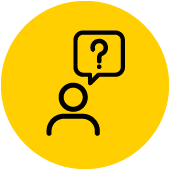
Question Assumptions: Students identify and evaluate stated and unstated assumptions underlying an experience, question, problem, or statement.
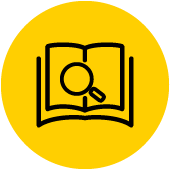
Evaluate Information: Students identify and evaluate relevant information to address an experience, question, problem, or statement.
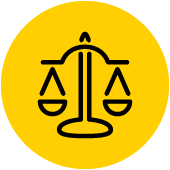
Analyze Ethical Implications: Students recognize and analyze ethical, questions, and problems.
Learning Goal: Communicate
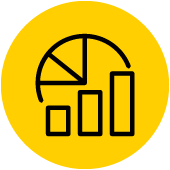
Communicate Quantitatively: Students interpret quantitative data and choose appropriate methods and formulas to communicate findings.
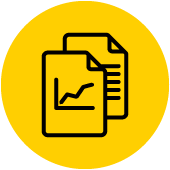
Communicate Contextually: Students choose communication formats and methods appropriate for the context, purpose and audience.
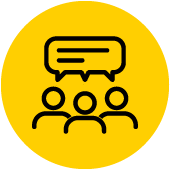
Foster Collaboration: Students communicate with others to develop, distribute, and complete tasks; seek and incorporate the perspectives of others; and communicate main ideas and results in team settings.
Learning Goal: Adapt
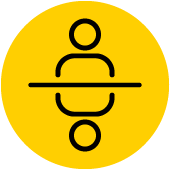
Reflect: students review prior learning (and experiences) to consider significance of experiences inside and outside the classroom as well as plan next steps for learning and growth.

Welcome Challenge: students demonstrate willingness to try new things, persevere in the face of obstacles, learn from mistakes, and appreciate learning and growth in addition to achievement.
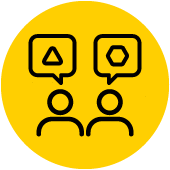
Explore Diverse Perspectives: students demonstrate awareness of their own norms and biases as well as existing diversity within and beyond their own social and cultural group(s).
Learning Goal: Contribute/Transform
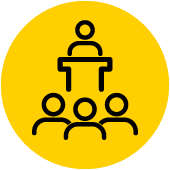
Engage in Civic Life: students develop the knowledge, skills, and motivation to make a difference in the civic life of their communities.
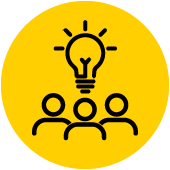
Innovate Solutions: students apply an appropriate process to design, evaluate, and/or implement a strategy to answer an open-ended question or achieve a desired goal.
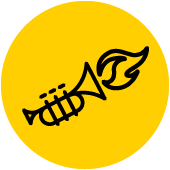
Create: students compose novel (or unique variations of existing) works, ideas, questions, formats, or products and synthesize their ideas with those of others.
So why make the change to these four goals and their aligned essential abilities?
The shift to the Essential Abilities in Michigan Tech’s new Essential Education program was driven by the need for a more streamlined, impactful approach to student learning. This move allows us to focus more effectively on the skills and competencies that matter most to employers and help students thrive not only in their first jobs but throughout their careers. The Essential Abilities emphasize critical thinking, communication, global awareness, and lifelong learning—key competencies for navigating an increasingly complex and interconnected world.
Think Critically
The ability to think critically about complex issues is vital for all students. While the disciplinary context and subject matter will vary, the ability to carefully consider assumptions, available information, and the ethical dimensions of problems and proposed solutions are key skills. Collectively, these skills help students make sense of large amounts of information, detect and avoid fallacies, facilitate dialogue, attend to diverse perspectives, and cultivate a deeper awareness of how to connect and synthesize culture, social, economic, and scientific ideas.
Communicate
The challenges of the 21st Century require the ability to communicate information and ideas intentionally, strategically, and responsibly – across a range of audiences, disciplines, and media – using a variety of modes (written, spoken, quantitative). Such communication required attention to the diversity of contexts (global, local, intercultural). Skillfulness in this area involves the ability to connect with others through interpersonal and group communication skills.
Adapt
Working and living in a diverse and rapidly changing technological society requires skills and mindsets that support lifelong learning, personal and professional growth, agility, and resilience. It is important that students are able and willing to take appropriate personal and intellectual risks, reflect on their own performance (successes and failures), and consider diverse perspectives that may evolve over time.
Contribute/Transform
A new frontier is emerging where the solutions to social problems will be found in a rapidly changing world where science, technology, humanities, arts, and social sciences intersect. In this environment, those who seek to make significant contributions to society must engage with multiple perspectives and use well-developed creative thinking skills to form new ideas that form their actions. It is essential for students to develop, share, and inspire creativity – such as pursuing opportunities in the creative arts, collaborating to find innovative and ethical solutions, and contributing to their communities and the broader world.
Michigan Technological University’s Essential Education Initiative will be fully implemented in Fall 2025. This forward-thinking curriculum will prepare our students for careers that don’t exist today. Michigan Tech’s Essential Ed further aligns our undergraduate curriculum with business workforce needs, further enhancing career opportunities for our students.